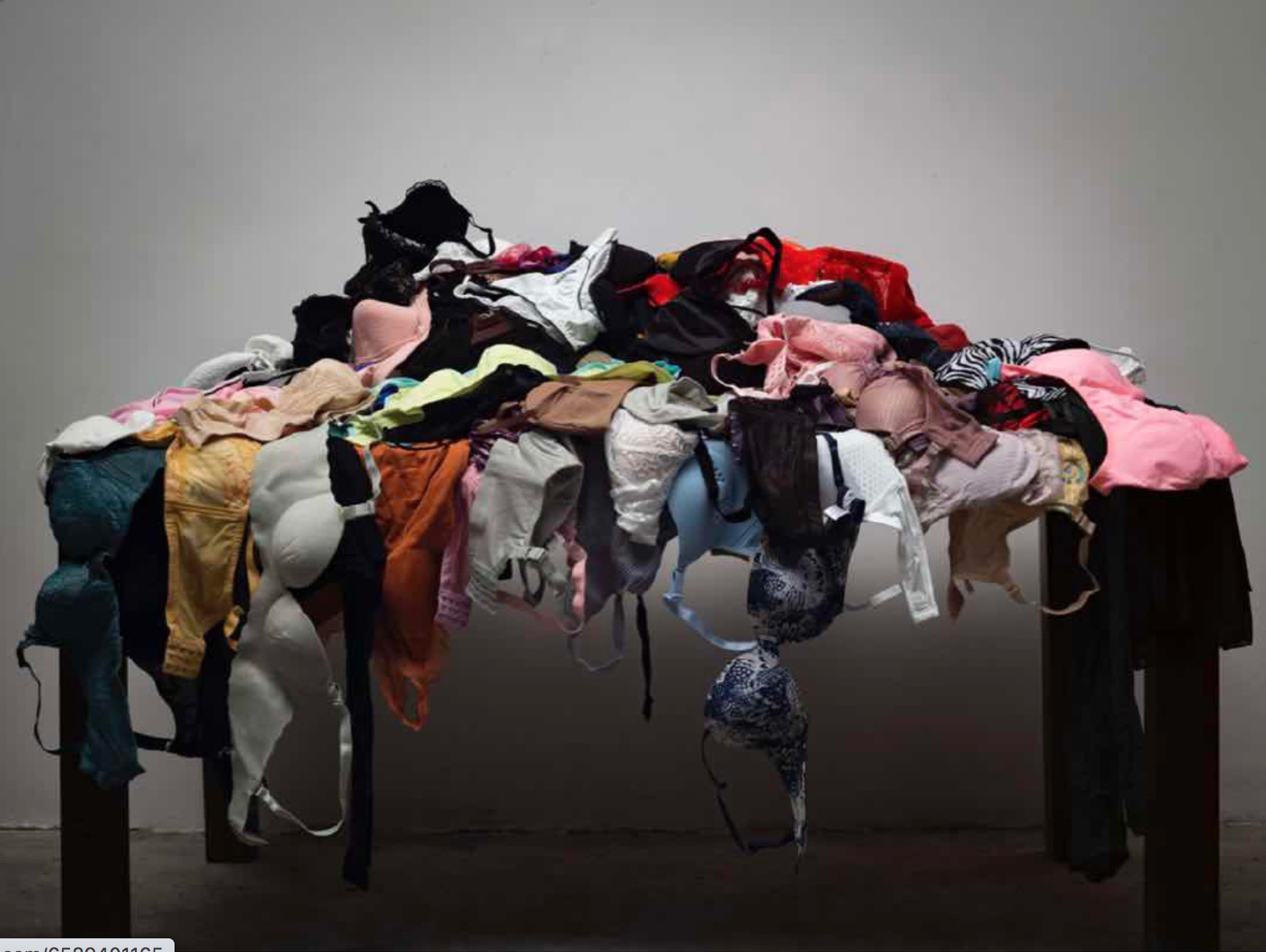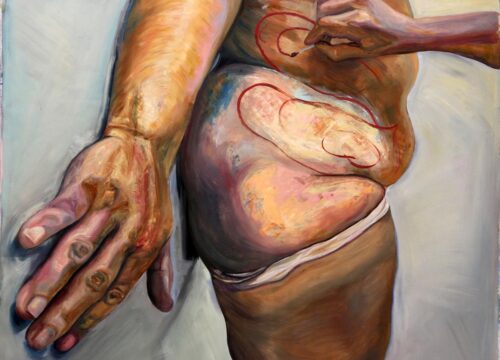Perverted or provocative? Installation by fake panty thief pulled from Chinese art contest
An art competition removed a candidate after complaints about his installation, a pile of allegedly stolen women’s underwear.

Today in “wait, seriously?” news from China’s contemporary art scene: An installation made of 197 articles of women’s underwear — which were initially, allegedly obtained by its creator through “unusual means” — has been deemed ineligible to participate in an art competition, after organizers received complaints and police intervened.
According to the Beijing News (in Chinese), the Chinese edition of the Signature Art Prize (SAP), an art contest that originated from the U.K. in 2006 with a mission to discover and celebrate emerging talents in the art world, has blocked an entry by Beijing-based artist Zhāng Míngxìn 张明信 after an avalanche of criticism. Before its removal, the art installation, which was shortlisted to compete for the top prize, had received 8,452 likes on the event’s website, the fourth most popular piece out of the 170 entries in the competition.
“We respect freedom of expression by contemporary artists and their ideas. But at the same time, we want to comply with regulations and help foster a civilized environment on the internet,” the organizers wrote in a statement on April 28. “After a strict review, we decided to disqualify some artists and their work from the competition.”
Titled “197,” the piece consists of a pile of bras and panties that Zhang says he acquired from random women over the course of two years. It’s accompanied by a 47-second video showing Zhang organizing the items on a clothesline. In its description, Zhang explains that the installation was inspired by a series of creepy thefts in 2017, when his girlfriend lost several items of underwear. Feeling that he had been “cuckolded” by a serial panty thief, Zhang said that he decided to become one himself, and started snatching women’s underwear from people’s balconies.
“At first, I had a sense of relief from doing this. But as time progressed, it became sexually exciting for me,” Zhang wrote, adding that he previously sent the “stolen” items — some with original blood stains and hair — to his girlfriend as a gift to “compensate for her unpleasant experience with the underwear thief,” but she “angrily rejected” the presents.
Calling the piece a “unadulterated display” of a chapter of his life defined by his struggles with “resentment and sexual desire,” Zhang noted that if he eventually found a buyer for the installation, he would buy expensive lingerie for his girlfriend.
But that probably won’t happen. After SAP uploaded images of “197” and its introduction to the art competition’s website, an internet user took to Weibo to call attention to the “despicable work” by Zhang. “I’ve contacted the organizers and told them that making art shouldn’t be an excuse for committing crimes or offending women,” the Weibo user wrote (in Chinese).
Her post quickly resulted in widespread outcry on Chinese social media, with many expressing disgust over the installation and calling for police to investigate Zhang’s claims about how he obtained the underwear. “He’s a pervert. Period. Stealing women’s underwear is a crime he committed in the name of art,” a Weibo user wrote (in Chinese).
Others raised questions about the organizers, accusing them of not screening submissions carefully enough. “The whole thing is ridiculously dumb on so many levels, but the part that puzzles me the most is how this piece was allowed to take part in the contest in the frist place,” another person commented (in Chinese).
Then, in a surprising turn of events, Beijing police revealed (in Chinese) last Friday that after interrogation, Zhang confessed that he fabricated the story about being a panty thief, and that he purchased all the items used for the art installation from retailers. While that cloud of confusion has been cleared, Zhang still has been put under police watch for causing “an adverse impact on society,” according to the police.
Born in 1985, Zhang is a contemporary conceptual artist whose work focuses on “exploring his abnormal mentality,” according to an interview (in Chinese) he gave in 2014. In an art project called “Our Museums,” he filmed himself bringing his own art pieces to other people’s exhibitions. In another short film named “Confession,” he delivers a monologue about a bunch of crazy ideas that he briefly contemplated but was too afraid to put into action, including murdering people he dislikes and robbing a bank.






